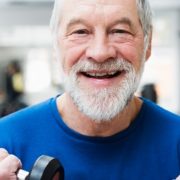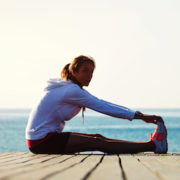Sitting is Bad for Your Brain — Not Just Your Metabolism or Heart
Article Found on ScienceDaily
Sitting too much is linked to changes in a section of the brain that is critical for memory, according to a preliminary study by UCLA researchers of middle-aged and older adults.
Studies show that too much sitting, like smoking, increases the risk of heart disease, diabetes and premature death. Researchers at UCLA wanted to see how sedentary behavior influences brain health, especially regions of the brain that are critical to memory formation.
UCLA researchers recruited 35 people ages 45 to 75 and asked about their physical activity levels and the average number of hours per day they spent sitting over the previous week. Each person had a high-resolution MRI scan, which provides a detailed look at the medial temporal lobe, or MTL, a brain region involved in the formation of new memories.
The researchers found that sedentary behavior is a significant predictor of thinning of the MTL and that physical activity, even at high levels, is insufficient to offset the harmful effects of sitting for extended periods.
This study does not prove that too much sitting causes thinner brain structures, but instead that more hours spent sitting are associated with thinner regions, researchers said. In addition, the researchers focused on the hours spent sitting, but did not ask participants if they took breaks during this time.
The researchers next hope to follow a group of people for a longer duration to determine if sitting causes the thinning and what role gender, race, and weight might play in brain health related to sitting.
MTL thinning can be a precursor to cognitive decline and dementia in middle-aged and older adults. Reducing sedentary behavior may be a possible target for interventions designed to improve brain health in people at risk for Alzheimer’s disease, researchers said.
Grounded in the belief we are all unique beings, we begin each new client with a meticulous bio-mechanical evaluation, assessing each joint in its relationship to the movement of the body as a whole. Our therapists are skilled at reading the unique story your body tells, and treating everything from the bottom of your foot to the top of your head.
Bodywise Physical Therapy is located in Portland, Oregon. The Bodywise approach is wholistic, individualized, and can benefit people of all fitness levels. While Bodywise has always specialized in general orthopedics, spine rehabilitation, and sports medicine, they have evolved into a truly wholistic practice integrating Hands-on treatments with Mindfulness, Pilates, Trauma Release Exercise, Womens Health and Lymphedema.









